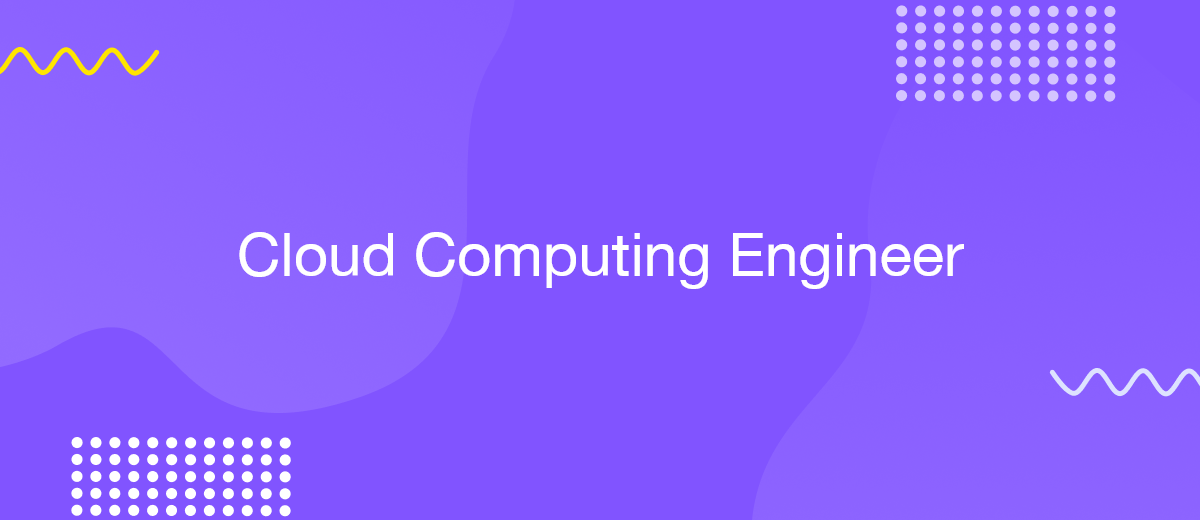Cloud Computing Engineer: Skills, Role, and Career Path
Cloud computing is one of the most significant technologies of the modern digital era. It brings considerable benefits to businesses, helping them optimize work processes, scale effectively, and reduce costs. In this article, we will discuss a specialist who is responsible for the development, implementation, and maintenance of cloud solutions. You will learn what a cloud computing engineer is, what skills they should have, what their responsibilities are, and how to master this promising profession.
The Importance of the Cloud Computing Engineer Role
First, let's figure out what cloud computing is and why this model has become the basis of modern IT solutions. Cloud computing is a model that provides on-demand access to computing resources, enabling users to store and process data, deploy applications, and leverage other computing services via the internet. This includes physical and virtual servers, data storage, network infrastructure, as well as tools for software development, analytics, and machine learning.
The spread of cloud technologies in modern business is explained by their versatility and practical advantages. Companies of all sizes – from startups to transnational corporations – actively use the rental of computing resources, as this allows them to reduce infrastructure costs and increase the flexibility of processes. Cloud computing engineers play a key role in the design and implementation of these solutions, providing stable access to data and capacity from anywhere in the world.
Businesses benefit greatly from the implementation of cloud technologies, as they offer flexibility, scalability, and potential cost savings. Accordingly, the profession of a cloud computing engineer is becoming extremely popular. Companies increasingly need specialists who are able to design, develop, and maintain high-performance cloud environments. This leads to a constant increase in demand for such IT experts.

The demand for the profession affects the salary level of its representatives. As of November 2024, the average annual salary of a cloud computing engineer in the United States was $129,000, ranging from $85,000 to $197,000. The income of specialists is influenced by their skills, experience, certifications, education, and the employer's location.
Key Responsibilities of a Cloud Computing Engineer
The profession of a cloud engineer covers a number of important tasks related to the functioning of cloud systems. Such a specialist is responsible for the design, deployment, support, and optimization of cloud infrastructure, ensuring its compliance with modern standards and business requirements. To be more specific, what does a cloud computing engineer do? Among their key responsibilities are the following:
- Designing a reliable, secure, and scalable cloud architecture. Selecting the necessary services, distributing resources, and defining network configurations.
- Implementation and deployment of cloud solutions with configuration of physical and virtual machines, storage and databases, and network infrastructure security systems.
- Setting up automation of repetitive tasks using Python, Bash, or PowerShell scripting languages to streamline cloud operations.
- Monitoring cloud system performance, identifying and eliminating problems and vulnerabilities, and optimizing resources used to increase efficiency and minimize costs.
- Securing cloud environments through encryption, identity and access management (IAM), firewalls, and other security measures to prevent unauthorized access and data breaches.
- Ensuring cloud environments comply with industry regulations and governance policies, including standards such as GDPR, HIPAA, or SOC 2.
- Collaborating with cross-functional software development teams on projects to integrate applications and systems with cloud services, as well as their maintenance and scaling.
Cloud Computing Engineer Specializations
Cloud computing covers a wide range of tasks. To implement them effectively, specialists with different technical skills are needed. Due to the variety of specializations in this field, cloud engineers can focus on specific aspects of working with cloud environments. This allows for the most effective distribution of responsibilities within the team and the provision of high-quality services.
The main specializations of cloud engineers:
- Cloud architects. Responsible for managing cloud infrastructure, designing architecture, and implementing and configuring applications.
- Cloud software developers. They develop and maintain applications, databases, and other software components of cloud systems.
- Cloud security engineers. Ensure the implementation of cybersecurity features to protect cloud platforms and applications.
- Cloud administrators. Manage the hardware and software infrastructure of cloud services.
- Cloud network engineers. Set up and maintain network infrastructure, ensuring stable data exchange between cloud platforms and their clients.
- Cloud automation engineers. Develop and implement solutions for automation, integration, and streamlined management of processes within cloud systems.
Essential Skills and Knowledge
Cloud computing engineer requirements include technical expertise and in-depth knowledge that cover key aspects of working with cloud technologies, networks, security, and automation tools. To succeed in a career in cloud computing, it is essential to meet them.


The key cloud computing engineer skills needed to succeed in this field are:
- Cloud platforms. The specialist should have a good understanding of the basic services of cloud platforms (computing, storage, databases) and be proficient in tools for working with the Internet of Things or machine learning. Knowledge of the operating principles of providers such as AWS or Google Cloud and the presence of certificates (for example, AWS Certified Solutions Architect) is a significant advantage.
- Programming and databases. A cloud engineer must be proficient in programming languages used in the cloud environment. Key languages include Java (for enterprise software), Python (for automation and serverless applications), and JavaScript/Node.js (for web applications integrated with cloud services). In addition, skills in working with cloud databases such as MySQL and Hadoop are important.
- Linux. This operating system is widely used for developing cloud systems and applications, so it is essential to know it. A cloud engineer must understand the architecture, maintenance, and administration of Linux servers to successfully work on projects.
- Networks. Knowledge of network management principles and virtual network operation is an important part of a cloud engineer's competencies. They need skills in working with DNS, TCP/IP, and VPN, as well as the ability to configure load balancing to ensure stable data transfer.
- Cybersecurity. Ensuring data security is one of the key skills. A specialist needs to master access management (IAM) and encryption technologies (e.g., AWS KMS) to protect data during storage and transmission.
- Web services and APIs. Understanding how APIs work is required to work with web services. Moreover, understanding and using standards such as SOAP, XML, WSDL, and UDDI are important.
- DevOps tools. Among the most popular are Terraform (for infrastructure automation), Docker (for optimizing deployment via containers), and Kubernetes (for automatic container management).
Soft Skills
In addition to technical competencies, a cloud engineer must have developed soft skills that help to effectively interact with colleagues, solve complex problems, and adapt to changes. These skills are important for successful work in cross-functional teams, with clients, managers, and more. They contribute not only to the performance of professional duties but also to the creation of a comfortable working atmosphere.
Key soft skills:
- Communication. Communication skills help you interact with developers and other technical specialists, colleagues from other departments of the company, management, and clients.
- Problem-solving. An engineer's job description involves regularly solving complex technical problems, from maintaining security to optimizing performance.
- Teamwork. Teamwork skills are essential for participating in cross-functional teams to develop, implement, and manage cloud systems.
- Adaptability. This skill allows you to quickly adapt to the dynamically developing field of cloud technologies and master new tools and solutions.
How to Become a Cloud Computing Engineer

A career as a cloud engineer requires a combination of a strong educational background, specialized skills, and practical experience. You can master this profession if you take the right steps: get the right education, get certified, and accumulate professional experience.
To become a sought-after cloud engineer, you will need:
- Education. The first step for aspiring cloud engineers is to obtain a bachelor's degree in computer science, engineering, or related IT disciplines. Almost every cloud computing engineer job description contains a requirement for it. During the training stage, it is worth paying attention to specializations that correspond to the future profession: cloud computing, cybersecurity, or software development. For most positions, a bachelor's degree is enough, but for employment in large companies, a master's degree may be required.
- Certifications. Employers value certifications from leading cloud service providers, such as AWS Certified Solutions Architect, Google Cloud Professional Architect, and Microsoft Azure Administrator. Certifications that confirm knowledge in narrow areas, such as cloud security or automation, are equally important. This is a serious tool for increasing competitiveness in the labor market. Having them shows employers that the candidate is ready for specific tasks.
- Experience. Most employers expect candidates to have hands-on experience in related fields such as systems administration, DevOps, or web development. This experience helps them learn key skills, including systems design, scripting, and infrastructure management. Proficiency in programming languages (e.g., Java, Python, Ruby) and tools such as OpenStack, Linux, AWS, Google Cloud, and Docker is a must. Experience with APIs, automation, DevOps tools, and databases, including NoSQL, is considered an advantage.
Conclusion
The cloud computing engineer profession has become an integral part of the modern IT industry due to its importance to business and technological progress. These specialists play a key role in the design, implementation, and maintenance of cloud solutions, helping companies adapt to rapidly changing conditions, reduce costs, and improve productivity.
Cloud technologies facilitate many innovations, such as artificial intelligence, the Internet of Things, and machine learning, by providing scalable infrastructure and computing power. Therefore, qualified cloud computing engineers are in demand today more than ever. Their knowledge and skills help businesses implement scalable, secure, and efficient cloud ecosystems, bringing them into compliance with modern standards and requirements.
The development of this profession opens up great opportunities for specialists who are ready for constant learning and mastering new tools. The future of cloud computing promises even more opportunities for professionals who strive to stay at the forefront of technological change.
Remember that using our ApiX-Drive online connector, you can automate processes on your own without any coding or special skills required. Be sure to check out our step-by-step guides to set up the integrations:

